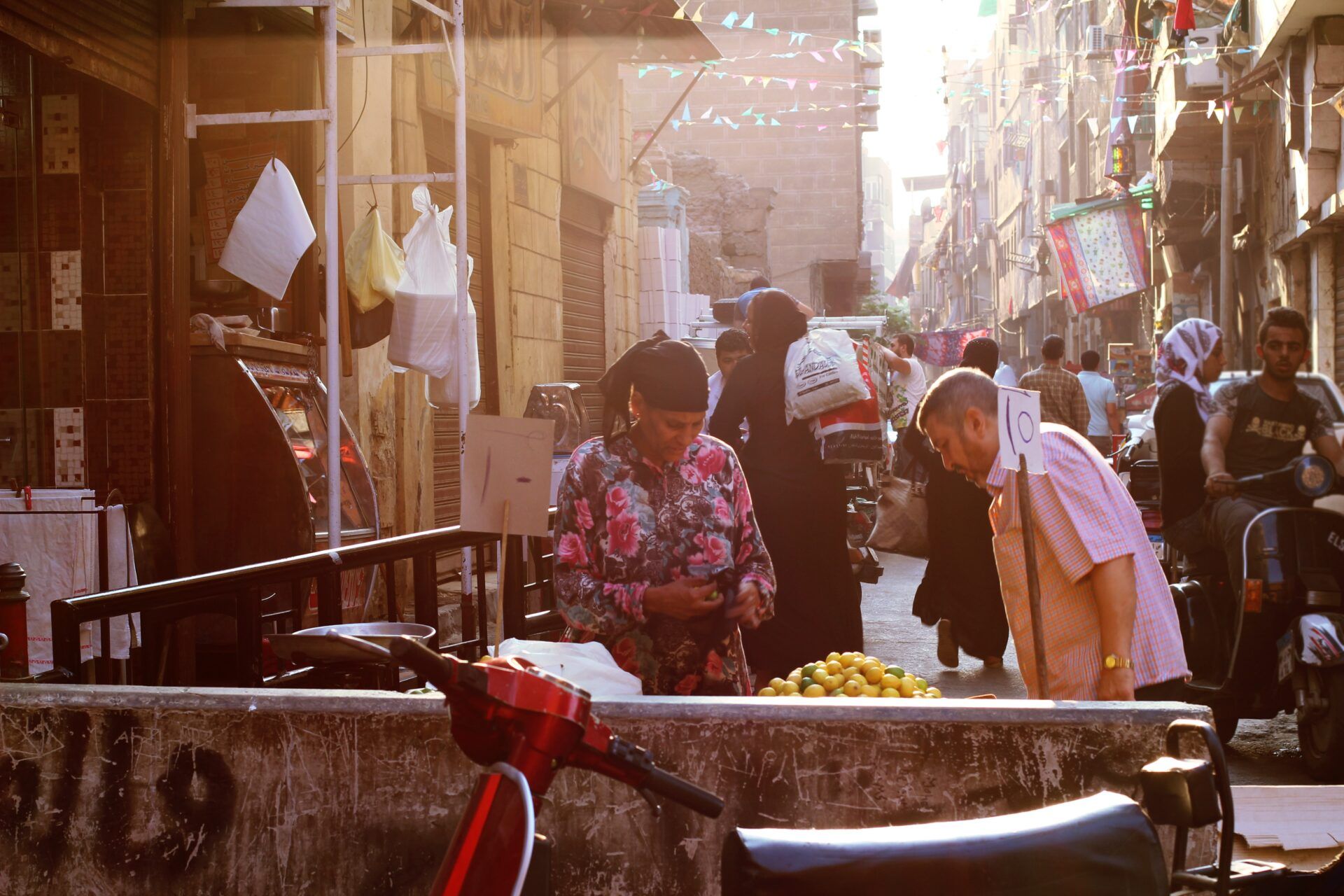Road To Inclusion: How Fintechs In Egypt Are Serving The Unbanked And Underbanked Population

Although it might seem impossible to people who enjoy the luxury of mobile banking free transactions and many more privileges that come with being banked, There is still a large population of the world who are yet to be banked.
The unbanked population refers to individuals who do not have access to a traditional banking system. This population is often composed of low-income individuals, minorities, and those living in rural areas. Without access to a bank, these individuals are unable to take advantage of important financial services such as credit, savings, and loans. This lack of access to banking can have a significant impact on their economic security, financial stability, and overall quality of life.
The lack of access to banking services can have a range of negative effects on the unbanked population. Without access to a bank, individuals are unable to build credit or save money, which can make it difficult to purchase a home or start a business. Likewise, without access to traditional banking services, individuals are often forced to rely on alternative financial services such as payday lenders and check-cashing services, which often charge high fees and interest rates. This can lead to a cycle of debt and poverty, as individuals are unable to access the resources they need to build financial security.
The effects of an unbanked population can be far-reaching and long-lasting. Without access to banking services, individuals are unable to build wealth and financial security. This can lead to an increased risk of poverty and economic insecurity, which can have a ripple effect on the entire community.
Unbanked and Underbanked in Egypt.
In 2021, a study published by a British research platform, Merchant Machine, ranked Egypt as the 2nd most cash-reliant country. The study had 67% of the citizens unbanked and 55% of its transactions via cash.
With this level of the unbanked population within the North African country attaining financial inclusion seems far-fetched. The reality of this situation means the citizens experience an unemployment rate of 9.33%, possible financial instability, and low economic growth among others. In other to improve the situation, the Egyptian government and some fintech startups are putting in the effort to increase financial inclusion within the nation.
The Egyptian government is making a concerted effort to promote financial inclusion in the country. This includes initiatives such as the introduction of a new digital payment system, the establishment of the National Financial Inclusion Strategy, and the launch of a national financial literacy campaign.
The digital payment system is designed to make it easier for people to access financial services, while the National Financial Inclusion Strategy is intended to create a more inclusive financial sector by increasing access to financial services and products. The national financial literacy campaign is aimed at raising awareness of financial services and products, as well as educating people on how to use them. These initiatives are part of the government’s broader efforts to promote economic growth and reduce poverty in Egypt.
Fintechs Doing Its Part In Egypt
Listed as one of the top 4 countries in Africa leading in digital technology, it will be impossible to have fintech non-existent within its community regardless of the numbers. While fintech startups are very much in existence within the nation, they are trying to impact the financial pattern of individuals nationally.
Fintech startups are playing an increasingly important role in helping to improve financial inclusion in Egypt. By providing access to financial services and products to those who may have previously been excluded, the startups are trying to bridge the gap between the formal and informal economic sectors. This is especially important in a country like Egypt, where a large portion of the population is unbanked or underbanked.
Through digital banking, mobile payments, and other innovative technologies, fintech startups are helping to make financial services more accessible and affordable, allowing more people to access the financial tools they need to manage their finances and build their financial security. Additionally, they help to reduce the amount of paperwork and bureaucracy associated with traditional banking, making it easier for people to open and manage accounts. By making financial services more accessible and convenient.
Doing the Most Towards Financial Inclusion
According to Fintech Coffe, Egypt is home to about 30 fintech startups. Each startup is presumed to be developed with the mission to encourage more banking activities among Egyptians, therefore, providing easy-to-navigate product services, free transactions, and continuous financial literacy sensitization. The following includes 4 fintech startups that endeavor to provide optimum services to underbanked and unbanked Egyptians.
Fawry
Fawry is a leading financial services platform in Egypt, providing innovative and convenient payment solutions for both individuals and businesses. By leveraging digital technology, Fawry is helping to bridge the gap between the unbanked and the banking sector in Egypt.
Through its network of over 100,000 payment points, Fawry is providing access to financial services to those who would otherwise be excluded from the banking system. This includes providing access to banking services such as deposits, withdrawals, transfers, and bill payments. Additionally, Fawry is providing access to digital payments, such as mobile payments, e-commerce, and digital wallets, to enable the unbanked to make payments securely and conveniently. By providing these services, Fawry is helping to promote financial inclusion and economic growth in Egypt.
Thndr
Thndr is a financial technology company that primarily offers financial investment services, it also helps to serve the unbanked population in Egypt. By providing a mobile-based payment platform, Thndr is allowing individuals to access financial services and products that were previously unavailable to them. Through this platform, users can make payments, invest funds, and learn more about financial literacy and independence.
Additionally, Thndr is helping to reduce the cost of financial services for the unbanked population by providing a secure and reliable platform that is accessible from any mobile device. By providing access to these financial services, Thndr is helping to empower the unbanked population in Egypt by giving them access to the financial tools they need to succeed.
Dopay
Dopay is serving the unbanked in Egypt by providing them with a safe and secure way to access financial services. Through their mobile app, users can easily pay employees, open a digital wallet and transfer money work team, pay bills, and receive payments. They also offer a variety of services such as cashless payroll, funding business accounts, savings accounts, and insurance.
Dopay is helping to bridge the gap between the unbanked and the banking system by providing a convenient and accessible way to access financial services. This helps to empower people who may not have access to traditional banking services, allowing them to make financial decisions that can help them improve their lives.
Lucky
Lucky is a mobile wallet app that is revolutionizing the way people in Egypt access financial services. By providing a secure and convenient way to store and access money, Lucky is helping to empower the unbanked population of Egypt. Through the app, users can securely store their money, send and receive payments, and make purchases online.
Besides, Lucky provides access to a range of financial services such as loans, insurance, and investments. With Lucky, users can manage their finances with ease and convenience, helping to bridge the gap between the unbanked and the banking sector in Egypt.
While Egypt is rich in fintech possession, not all of them are scaling as the aforementioned. In reality, there is still a significant gap between the banked and the unbanked within the nation. It will be in benefit the citizens, fintech startups, and the nation at large if more solutions can be provided to further encourage financial inclusion while eradicating exclusion. This will therefore make the cashless policy not just a trend but a lifestyle.
Photo by Mahmoud Diab on Unsplash
